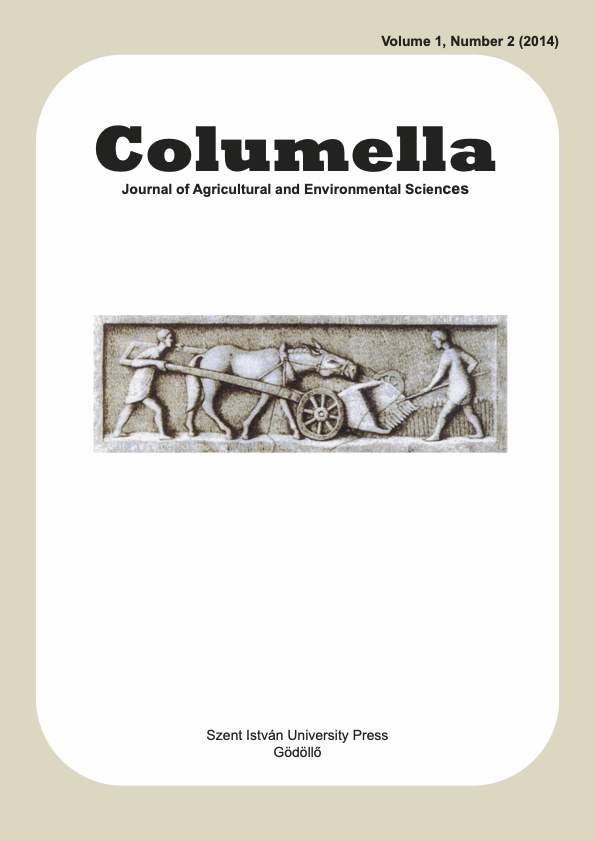Storage proteins in wheat (Triticum aestivum L.) and the ecological impacts affecting their quality and quantity, with a focus on nitrogen supply
DOI:
https://doi.org/10.18380/SZIE.COLUM.2014.1.2.57Keywords:
review, wheat, proteins, nitrogen suplyAbstract
Wheat (Triticum aestivum L.) is the most widely used basic staple for mankind. Wheat is also one of the most important cereals in Hungary with a high economic value. The aim of wheat production is twofold; to provide quantity and quality. Milling and baking quality of wheat is mainly determined by the genetic basis, however it can be influenced by management techniques.
Storage proteins account for more than half of the total protein in mature cereal grains and have important impacts on their nutritional quality for humans and livestock and on their functional properties in food processing. Gluten proteins - gliadins and glutenins of wheat determine the quality of the grain for breadmaking and their amount and composition can be influenced by agronomic impacts leading to changes in dough properties and that of baking quality.
The present review is dealing with the impact of various agronomic and environmental factors on the performance of storage proteins and within them gluten proteins.
Downloads
Published
Issue
Section
License
Copyright (c) 2014 Csaba Horváth

This work is licensed under a Creative Commons Attribution-NonCommercial-NoDerivatives 4.0 International License.






